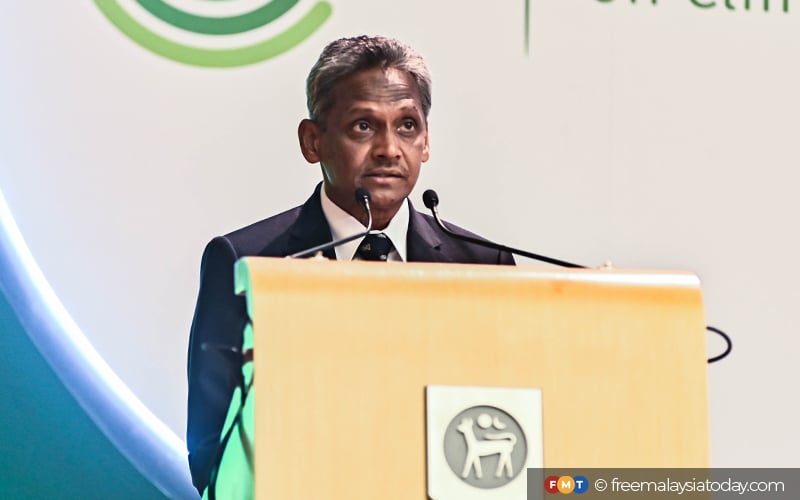
KUALA LUMPUR: Malaysia is expecting to see at least half of new financing by the local banks aligned with climate-supporting or transitioning activities by 2026, says Bank Negara Malaysia (BNM) governor Abdul Rasheed Ghaffour.
He said there is currently growing focus and concrete climate actions taken by financial institutions in Malaysia and to date, the industry’s financial commitment stands at over US$43 billion (RM200 billion) for environmental, social and governance (ESG) purposes.
“That said, Malaysia cannot do this on its own. As stated in the National Energy Transition Roadmap (NETR), the government anticipates that Malaysia will require investments of about US$280 billion by 2050 to meet our energy transition needs,” Rasheed said in his opening address at Malaysia’s Climate Finance Day at the 28th Conference of the Parties (COP28) in the United Arab Emirates (UAE).
He said it is hoped that the Malaysian financial sector would play a key, vibrant role in mobilising capital to address the enormous climate financing needs of the world at large which is estimated at US$275 trillion by 2050.
“Our vision for Malaysia to facilitate and catalyse green finance flows for the betterment of the planet aligns closely with our aspiration of becoming the renewable energy hub for Asean, as well as to serve as an international gateway for Islamic finance.
“We see the opportunity for more innovative solutions such as blended finance to support a just and orderly transition. To illustrate, by combining concessional financing and commercial funding, blended finance can help increase the bankability of high-risk green and transition projects,” he said.
Rasheed added that blended finance can also ease transition costs, especially for small and medium-sized enterprises (SMEs).
“Being a nation blessed with unparalleled biodiversity, nature conservation holds paramount importance for Malaysia. Our rich ecosystems not only contribute to the global tapestry of life but also form the backbone of our economy and the livelihoods of many Malaysians,” he said.
By safeguarding natural treasures, Rasheed said Malaysia will ensure the sustainability of vital resources, supporting agriculture, forestry, and fisheries.
“As stewards of this diverse and precious land, embracing nature conservation is not just a responsibility but a pathway to a sustainable and resilient future for Malaysia and beyond,” he said.
Meanwhile, the BNM governor said that climate and nature-related risks are tightly intertwined, where climate change, driven by factors like emissions and deforestation, exacerbates extreme weather events and biodiversity loss.
He said these changes, in turn, heighten risks of more frequent disasters, shifts in disease patterns, and challenges to food and water security.
Recognising these interconnections, Rasheed said the central bank has been and will continue to actively build its knowledge and understanding of nature and the role of the financial sector in nature conservation.
“Let me reiterate that Malaysia welcomes the opportunity to work with partners to deliver on our commitments to fight climate change.
“On its part, BNM is fully committed to providing a sound and facilitative policy environment that allows for innovation to meet the large financing needs for climate risk mitigation and adaptation while strengthening climate risk management practices within the financial sector,” he said.
Rasheed said Malaysia also recognises that while climate challenge requires urgent action by all, it is equally important for the world to chart the path forward in a just and orderly manner.
He said this means striving to improve the well-being of communities all over the world, particularly for those most affected by climate change and the transition.
“Only by promoting positive outcomes that benefit everyone and by minimising negative impacts and unintended consequences, such as financial exclusion, can we get long-lasting and meaningful commitment from all.
“We will continue to actively participate in the global conversation and represent emerging market perspectives on sustainable finance developments and challenges, to support a more inclusive global approach to fighting climate change,” he said. - FMT



No comments:
Post a Comment
Note: Only a member of this blog may post a comment.